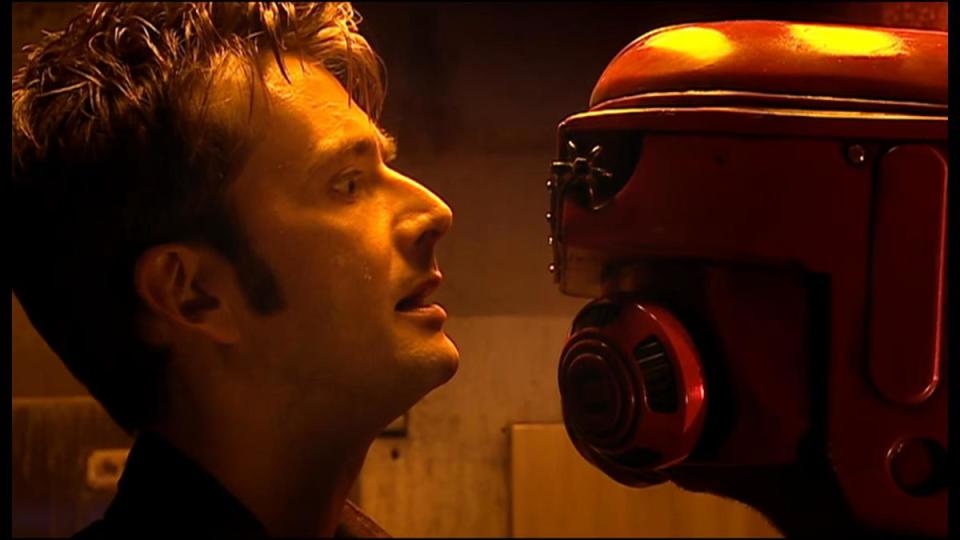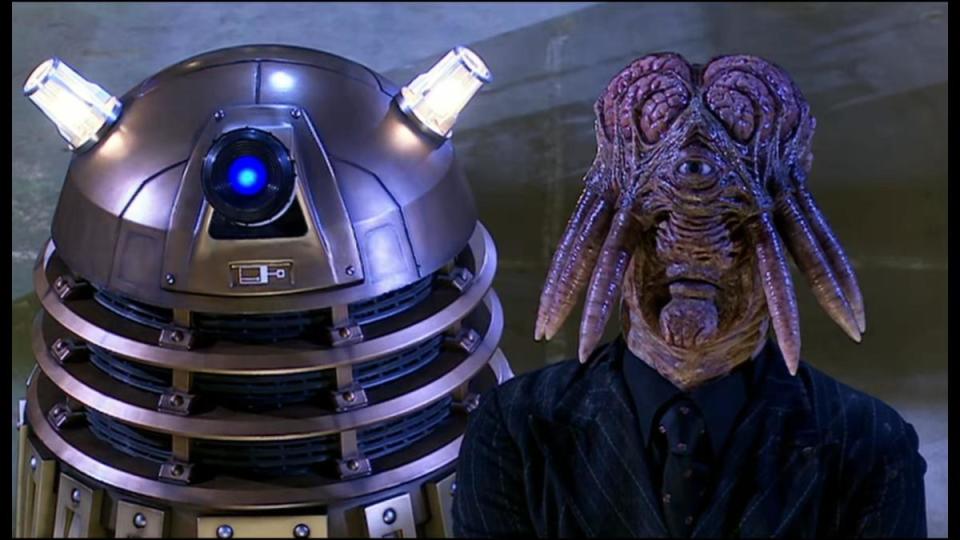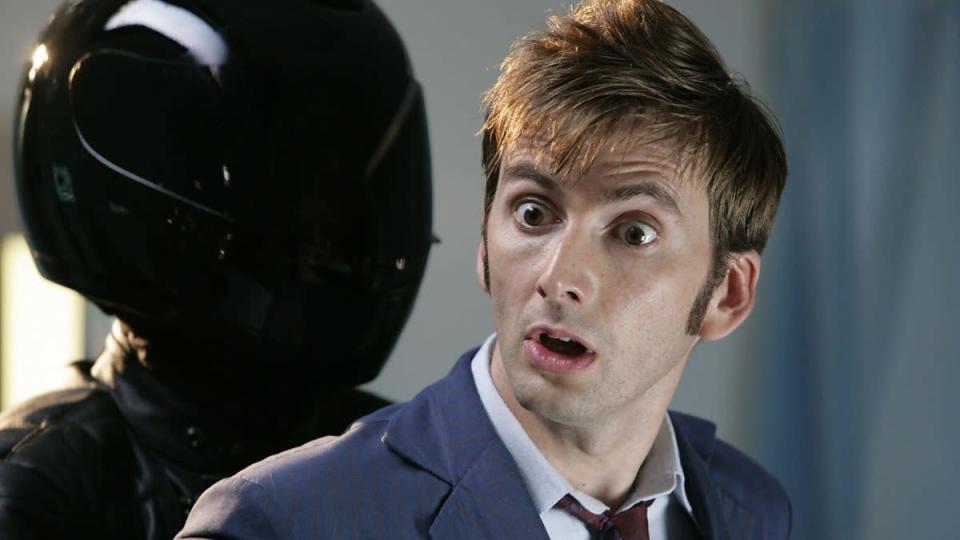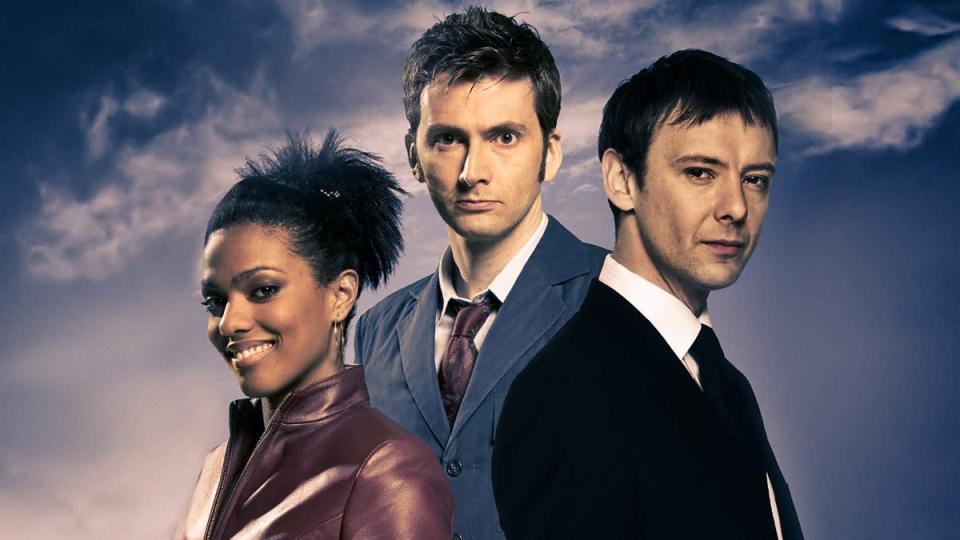Every Episode of Doctor Who Series 3 Ranked From Worst to Best
- Oops!Something went wrong.Please try again later.
- Oops!Something went wrong.Please try again later.
- Oops!Something went wrong.Please try again later.
- Oops!Something went wrong.Please try again later.
David Tennant had already grown Doctor Who into something massive by the start of Series 3, but it was time to see how he’d fare without beloved companion Rose Tyler by his side. This series introduced Martha Jones, played by Freema Agyeman, as the Doctor’s companion, with the dynamic being taken in a different direction following the romance angle for 10 and Rose.
It makes for a series that has the specter of what came before hanging over it, but showrunner Russel T Davies was smart enough to make that part of Martha’s story, even if it didn’t always land like it was supposed to.
To see just how it turned out, we’ve gone back through the entire series and ranked every episode from worst to best.
The Lazarus Experiment

BBC
This might be one of the most forgettable episodes of Doctor Who ever made. We spend a lot of time building up to the monster being unleashed, only for not a lot to come of it. Once Lazarus transforms we just around aimlessly for a bit with not much story, mystery, or discovery going on. Plus, the monster is built up as completely unkillable until it’s suddenly time for it to die, and then it does so quite easily.
Martha’s family isn’t anything interesting either, it feels like they’re only here to establish them as set dressing for the finale.
42

BBC
This is the first Doctor Who story written by none other than Chris Chibnall, the man who a decade later would usher in the worst era of the show since its revival, so it’s no surprise to see this episode this far down on the list.
One of the things Chibnall would get flak for overusing as showrunner was his countdown timer final-act threats, so it’s hilarious to see that this episode’s whole concept is one big countdown timer until everybody dies. A ship slowly falling into a sun should be full of tension, but Chibnall manages to undercut it all by filling such a long portion of the episode on 20th Century pop-culture trivia – which for some reason is the key to overriding a lockdown.
Then there’s the whole “burn with me” villain which is never threatening and indicative of what was to come with Chibnall’s writing in the future.
Daleks in Manhattan & Evolution of the Daleks

BBC
Many people blame the Moffat era for turning the Daleks into lame villains, and while those stories have a lot to answer for, I think there’s a solid case to be made that this story completely broke the Daleks as threats.
Doing something new with the Daleks isn’t a bad idea, but this just wasn’t it. After the chaos they wrought in Doomsday, this felt like a huge step down for the Cult of Skaro, with the human/Dalek hybrid offering an interesting concept with poor execution. A Dalek experiencing human emotions for the first time in their lives should’ve been a huge deal, but in the end, it just manifests as a few forlorn looks, and a face turn from Sec that comes out of nowhere.
In another universe, there’s a version of this story that’s an all-time great, but this ain’t it.
The Shakespeare Code

BBC
Aside from the title being a joke that I genuinely only got for the first time while writing this, The Shakespeare Code is the kind of episode that I never really think about, and often skip when rewatching this era, yet it’s actually pretty good.
Shakespeare is quite a character in this one and is one of the more entertaining portrayals of a historical figure in the show’s history. The plot with the witches is a little out there, but the episode gets the creepy atmosphere right, while making the costumes and performances over-the-top in just the right way, making them feel like something right out of – well, Shakespeare’s writing.
It’s nothing spectacular, but if you haven’t watched it in a while I recommend you revisit it for a pleasant surprise.
Smith and Jones

BBC
Like a lot of things in Series 3, this season opener isn’t among the best, but it hits all of the right notes, sets the series off with a bang, and does a good job of introducing Martha as the new companion.
Her family is used a lot better here, showing us her desire to get away from being the mediator in all of the crises, which is a good arc for her alongside her one-sided romance with the Doctor. Having him kiss her immediately was a bit cheap – even if they did make a narrative excuse for it – but it keeps with the idea that the Doctor can walk in a room and immediately charm almost anymore.
The adventure itself is a fairly light and mostly fun ride, if fairly predictable. The visual of a plastic straw being stuck in someone’s neck as all of their blood is sucked out is a subtly unsettling visual that I love, and the Judoon are the kind of weird Doctor Who monster that is always welcome.
Gridlock

BBC
When you start watching Gridlock, you don’t expect it to go quite as hard as it does. Returning to New Earth didn’t promise anything special and yet we got a surprisingly touching story that plays with some interesting themes.
After seeing the utopian side of this society last season, now we see its underbelly and how mood-inducing drug have seen the whole thing fall to ruin, with humanity’s only salvation to trapped in an endless motorway loop for their whole lives. It’s a tragic idea and it’s utilized to its fullest, as we see the downtrodden hope of these people who deep down know they’ll never see another life.
That doesn’t stop the episode from having fun though, we get some memorable and lovable secondary characters, and a couple of great action sequences where the Doctor gives us snippets of all the different types of people on the motorway before it all culminates in a bittersweet climax, full of emotionality as everyone escapes, but at the cost of a dear friend.
The Sound of Drums & Last of the Time Lords

BBC
This is often the overlooked finale of the RTD era, and I’ve always thought that was unfair. Sure, it doesn’t have the fun gimmicks of Doomsday and Journey’s End, but it’s still a ridiculously fun finale that reintroduces an all-time great Who villain in the Master.
John Simm’s incarnation of the character was a big step away from that of the classic series, but I think that’s a good thing. The classic Master was always the stoic evil to the Doctor’s chaotic good, but this insane version of the character complements Tennant’s Doctor much better, and he steals the show throughout both parts of this finale.
Jack could’ve been utilized better – especially in the second part – but making it Martha’s story was a good route to go, and it made her finally feel like a companion in her own right, as opposed to someone constantly in Rose’s shadow. Yes, the ending is rather cheesy with the Doctor becoming all-powerful, but I think people overstate its impact on the episode, and that it’s actually Martha’s work that saves the day.
It may not have the long-lasting impact of other finales, but it’s still a top-tier adventure in its own right.
Utopia

BBC
While Utopia is technically the first of the three-part finale, it’s also separate enough that I wanted to talk about it on its own. This is a brilliant slow-build of an episode, giving us Captain Jack back in explosive fashion before taking us all the way to the end of the universe – and that’s just the starting point.
From there we get this fantastic gradual burn with perfect little teases as to who Professor Yana really is. It’s an episode that uses the calm moments to its advantage, giving us meaningful conversations between just about every character involved, punctuated with powerful action scenes that get the heart racing.
Then there’s the reveal of the Master. Derek Jacobi’s version of the character was so short-lived and yet was perfect for the character, menacing in every way as he transforms from a lovable professor into the heart of all evil. Then we get a regeneration of all things and the TARDIS flies away in what, for my money, is the best cliffhanger in the show’s history.
Human Nature & The Family of Blood

BBC
Doctor Who often likes to look at things from different angles, with various writers coming up with new spins on one idea, but Human Nature stands out as something that has truly never been done before or since on this show.
The Doctor turning himself into a human and forgetting who he really is sounds like the basis for a fanfic, but this episode makes genius use of the concept. In 1913, we see the Doctor’s human self do things we know our hero would never agree with, like training young boys for a war they don’t yet know they’ll be fighting.
It turns into more than that though, as while we and Martha just want the Doctor to return and save the day, we come to see how John Smith falls in love, and when our hero returns it will be at the cost of a life he invented. The episode doesn’t shy away from that either, the scene with Joan at the end forces the Doctor to face the fact that what he’s done was actually quite horrific in one of the best examples of the show playing with the character’s dark side.
Blink

BBC
Even if you’re not a Doctor Who fan, you might know this episode, or at least be familiar with the Weeping Angels. Plenty of new villains have been introduced since Doctor Who was revived, but only the angels have managed to reach the iconic levels of the Daleks or Cybermen, and seeing this episode it’s easy to see how they managed it.
Even if you removed the Doctor Who context from this episode, it would be an incredible horror story. Statues that move at the speed of sound, but only when you’re not looking at them is such a brilliant concept for horror, and the episode plays with it perfectly. It understands how to play with horror like no other episode, using the cinematography to trick your eye and have the angels in the background subtly move as characters pass over them in the frame.
We get some great time travel antics too, as the conversation across decades between the Doctor and Sally gives us a neat little bootstrap paradox, while all that creeping tension slowly boils over into an action-packed finale, even though the monsters can’t actually move.
It’s a perfect blend of sci-fi and horror that makes it a perfect episode to any prospective Doctor Who fan.

